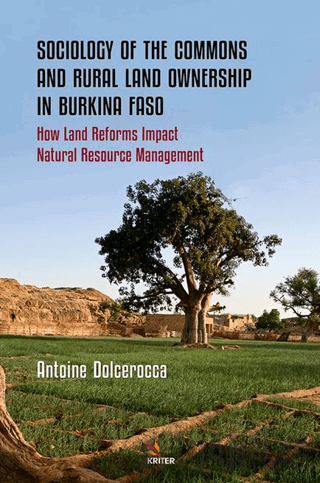Sociology of the Commons and Rural Land Ownership in Burkina Faso How Land Reforms Impact Natural Resource Management

This book bridges sociological and political economy perspectives on land commons in sub-Saharan Africa, focusing on Burkina Faso. It critically examines the impact of state-recognized customary land rights, challenging the notion that formalization alone enhances rural livelihoods and environmental management. Instead, it argues that neoliberal policies and market-driven land reforms have led to land commodification, destabilizing traditional property regimes and exacerbating rural impoverishment. By exploring the "Burkinabè state-commons"—new forms of collaborations between the state and customary regimes—the book proposes an alternative path to the relentless commodification of land observed across the Global South. This case study reveals the potential for a unique synthesis of state and commons that could mitigate the ongoing depeasantization in Burkina Faso and offer lessons for rural land governance worldwide.
This book bridges sociological and political economy perspectives on land commons in sub-Saharan Africa, focusing on Burkina Faso. It critically examines the impact of state-recognized customary land rights, challenging the notion that formalization alone enhances rural livelihoods and environmental management. Instead, it argues that neoliberal policies and market-driven land reforms have led to land commodification, destabilizing traditional property regimes and exacerbating rural impoverishment. By exploring the "Burkinabè state-commons"—new forms of collaborations between the state and customary regimes—the book proposes an alternative path to the relentless commodification of land observed across the Global South. This case study reveals the potential for a unique synthesis of state and commons that could mitigate the ongoing depeasantization in Burkina Faso and offer lessons for rural land governance worldwide.











